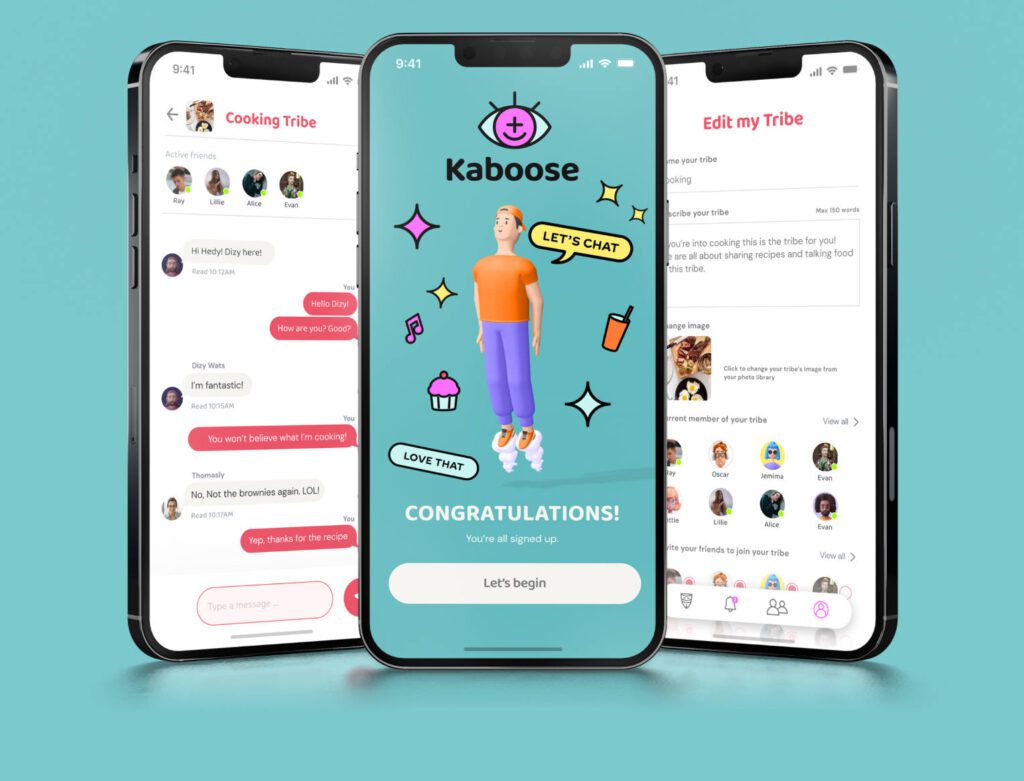Written by Karla Pretorius
Kaboose Clinical Lead, Registered European Psychotherapist and PhD Researcher
Imagine a mid‐level manager in a tech organisation. She has a team member who nods in meetings, takes notes, and meets all the deadlines. The team member is quiet during social events, though and struggles to make friends with the rest of the team. The manager calls her in, asks, “Are you okay?” and she answers, “Yes, I’m fine,” but she’s drained, masking her exhaustion, and already thinking of leaving. As a therapist working with neurodivergent individuals, this is such a common theme. As a neurodivergent individual myself, this is such a familiar feeling.
Meanwhile, the manager wonders what she missed; he set up the inclusive policy, ticked the accessibility box, and still the team member disengages. There is so much to do and manage that managers are doing what they can to be compliant. Rarely, though, is this what divergent or differently abled minds need.
Organisations say they champion inclusion, neurodiversity, and well-being. But what’s missing is the behaviour, the subtle daily interactions, the micro-moments where people finally feel safe enough to say “This isn’t working for me” or “I work better in (this) way.”
The current reality
Workplaces are more complex, demands are higher, and employees are experiencing escalating stress. Research shows that when the demands of work exceed the available resources, including psychological safety, social support and clear communication, stress and burnout become more likely.
For neurodivergent individuals (for example, adults with ADHD, autism, dyslexia), the gap is even larger. They are underrepresented in employment, and when employed, they (us) often report lower well-being and fewer meaningful support systems. The “neurodiversity at work” surveys point to very low retention, high masking burdens, and a diminished sense of belonging.
In one of my Kaboose Mental Hangout sessions today, someone mentioned, “It feels like I have to constantly tell people why I can’t do things the way they want me to do it.” The accommodations are often set in place after the fact. Which means that most neurodivergent or differently-abled individuals are set up to fail first, before they advocate for what works and what fits.
At the same time, neurotypical employees are not immune. Cognitive load, hybrid working complexities, digital distractions, and emotional exhaustion mean that many are barely functioning or what I hear often from friends, “surviving”. Feeling like you belong, like you can speak up, like you can bring your whole mind and exactly who you are; that remains elusive for many.
Why inclusion policies alone don’t change experience
Here’s the paradox: you can have a well-designed inclusion policy, slot in neurodiversity training, launch a one-day workshop, and still the truth is this: people will still feel unseen, unheard, or not safe.
From a psychological perspective:
- Psychological safety is the degree to which team members feel safe to take interpersonal risks: ask questions, say “I don’t understand”, make mistakes, and be themselves. Without this, behavioural change is blocked.
- According to the stress-and-coping framework, when demands exceed resources (including social, emotional, and cognitive resources), people shift into “survive” mode rather than “excel” mode. Neurodivergent brains, in particular, may require tailored supports or different environmental calibration (things like sensory breaks, clear communication, processing time) and when those are missing the risk of overwhelm is higher.
- Traditional training often aims to increase awareness (“Know about neurodiversity, use appropriate language”) but rarely shifts the micro-behaviours of day-to-day interaction. The gap between awareness and action remains large.
- Another misconception (contrary to the above) is that we need to excel – why not just be able to complete our work in a way that still allows us to go home and enjoy life? Perhaps more of a philosophical question, but when has life become all about “levelling up” and working to better output every day? We may need to consider this from a broader global perspective and also cultivate the practice of being present and mindful in our interactions with others – staying curious and taking a moment to breathe.
The business case
It’s not just the “nice to have” moral case; there’s a measurable organisational cost when people don’t belong, when they feel unsafe or misunderstood.
- Retention declines, recruitment costs rise.
- Creativity and innovation suffer when people don’t feel free to bring their whole thinking style.
- Teams miss out on the performance advantages of cognitive diversity (different ways of thinking, processing, communicating). When everyone’s brain is assumed to work “the standard way”, we lose alternative perspectives. We are losing out on a bit of what precisely makes neurodivergent minds so powerful – the way to find solutions to things people might not have even seen as problematic.
We do need the energy to be in this state of wanting to utilise our strengths, though, and this is where the catch-22 happens. For neurodivergent minds to be at full capacity, we need to find a balanced way to work and engage in social settings. We need to share what we need in a safe space, where we feel change is possible.
So here’s where we land: The workplace has changed. Inclusion is no longer enough as a checkbox. What matters is belonging, and what drives belonging is behaviour: psychological safety, micro-interactions, adaptive environments, and mutual learning.
In the next article, I will delve a little deeper into why diverse minds matter – why neurodivergent and typical brains alike struggle, how we all learn from one another, and how diversity in thought (rather than just diversity in demographics) emerges as a strategic advantage.




